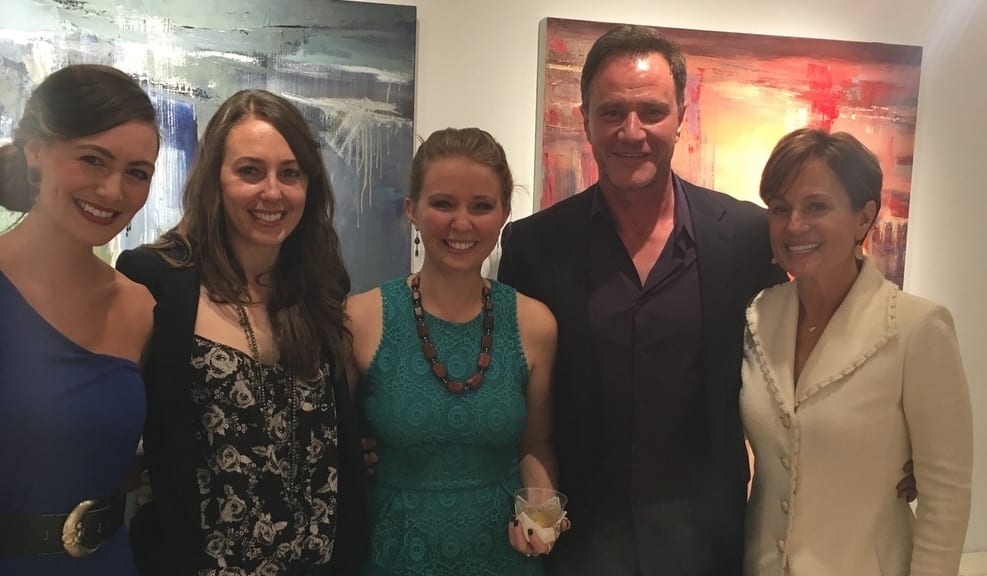Six Tips on How to Successfully Pitch at Virtual Film Markets and Festivals as an Independent Filmmaker
Review by Sienna Beckman
Developmentally Edited by Alexandra Hidalgo
Copy Edited and Posted by Jennifer Bell

Emergence Films is an independent film and TV development and production company based in London, Los Angeles, and Seattle that is committed to championing female-identifying filmmakers and underrepresented storytellers. As co-founder and development producer, I’ve attended film festivals and markets around the world, pitching our film, television and documentary projects, including some of the biggest festivals, like the London Film Festival, American Film Market, Berlinale, MIA Roma, Sundance, and Cannes. As a year like no other, 2020 brought an interesting mix of delayed, canceled, and re-imagined events.
With Covid-19 still a looming reality, many film festivals and markets around the world are opting for either completely virtual or hybrid virtual events, which have proved very different from the normal, in-person experiences. Veteran festival attendees might be missing the networking drinks, the parties, and the in-person screenings, but it’s still very possible to have a successful market or festival experience, even if it’s just you in front of your laptop at your kitchen table. Here are a few tips to help!
1. Start planning early! Plan ahead and start requesting meetings as early as three to four weeks in advance. While some companies might not start booking meeting slots until closer to the market dates, it’s good to get on their radar early especially if you’re trying to contact bigger companies like Universal, Working Title, or Canal+ (to name just a few). It will most likely take a few tries to get a response, so the more time you plan for that, the better. If you don’t have a direct point of contact with the company, do some internet research to find direct email addresses or phone numbers to their employees. Sending an email to an “info” email address could be easily overlooked. I have found in the past that reaching out to development assistants or executive assistants in companies usually gets a faster response, because higher ups are more likely to have fuller inboxes and will probably not look at an email from someone they don’t know.
2. Research and spreadsheet. Spreadsheet is key! Make a list of the companies you specifically want to target and start looking for how to contact them. It’s important to do your research well and find companies that fit the project you are pitching. It’s fine to aim high and try to contact the big players, but small and medium sized companies could have just as much of a positive effect, if your project fits their company mission statement and matches the type of content they make. Utilize every resource that’s available – IMDb Pro, LinkedIn, Cinando, mutual acquaintances, friends, and family. There are many ways to get to someone, so be creative! There are so many different sales, distribution, finance, development, and production companies in the world, it’s really important to reach out to companies who specifically match the kind of project you’re making. If you see a film that is in a similar genre or style as yours, look up who the producers and production companies are. Use the internet to research companies’ past projects to see if your project would be a good fit for them. Make sure when you request your time with them, you make the most of it. Have your pitch materials ready to go (look book, teaser/sizzle, treatment and/or script). Be ready to pitch your project and make sure you can answer the crucial question: Why does your project have to be made now? First impressions are everything.

3. Don’t be afraid to pick up the phone. Though Covid lockdowns mean that a lot of offices are currently closed, a lot of people have their office phones forwarded to their mobiles. Getting to actually speak to someone on the phone and alerting them of an email you sent makes it much more likely that they will respond to your email. You don’t want to pitch someone your project on the first call. On this first call you will most likely be speaking with an assistant, so this is the time to schedule as “in-person” of a meeting as possible to do your pitch for a creative executive or development producer (which these days means a video call of some kind). You want to be able to actually see the other person’s face. It’s important to pitch in a setting where the other person can see your passion for the project, not just see a logline or story synopsis in an email. Because when any company agrees to take on a project, they’re also taking on you as a filmmaker, so you need to be able to convince them that you are the right person to make this particular project.
4. Look the part and take breaks! Make sure to set yourself up for success by having your laptop in a quiet place where you won’t be disturbed in your meetings. Wear professional yet comfortable clothes, and try to have your background be plain and not distracting. And remember to take breaks! Staring at a screen for too long does not do you any favors, especially when you’re pitching and/or trying to impress people. There’s no point in cramming your schedule with back-to-back meetings if it’s going to make you feel like you’re scrambling. So try to schedule five or ten minutes between meetings to write notes, clear your head, and remind yourself who the next person you’re meeting is before that next meeting starts. Then every two or three hours, give yourself a 30-minute break. Drink lots of water, get up and stretch your arms and back, rest your eyes from the screen.
5. Set meetings after the festival/market. Don’t worry if you aren’t able to get a meeting during the actual festival or market. Buyers are usually slammed with trying to watch films and make deals, and companies who are trying to sell films are busy doing just that. There is precious little time for meetings with prospective projects, but the beauty of virtual markets is that it doesn’t matter where people are from, you can still schedule meetings afterwards. That’s the beauty of the internet! So follow the same advice above to reach out and set up meetings on dates outside of the festivals or markets. This is usually called a “general” meeting for the company to get to know you as you pitch your project.

6. Follow up, follow up, follow up! The art of the follow up is a beautiful dance that I am still learning. But from someone who’s been on both sides of this dance, I am much more likely to read someone’s script if they actively, considerately, and regularly follow up and remind me to. If you send materials, give it at least two weeks before following up. Then try to follow up with some news or an update about the project: “Hey I just wanted to update you that…” If they’ve requested the materials, that means they want to look at them, but it’s impossible to predict what someone else has on their plate at any given time. So keep following up!
Learn more about Emergence Films on its website, Twitter, and Instagram. You can connect with Sienna on her profile.